Community
Has COVID-19 Changed Our Friendship Groups? What It Looks Like a Year Later
Published
4 years agoon
By
Matt Bruce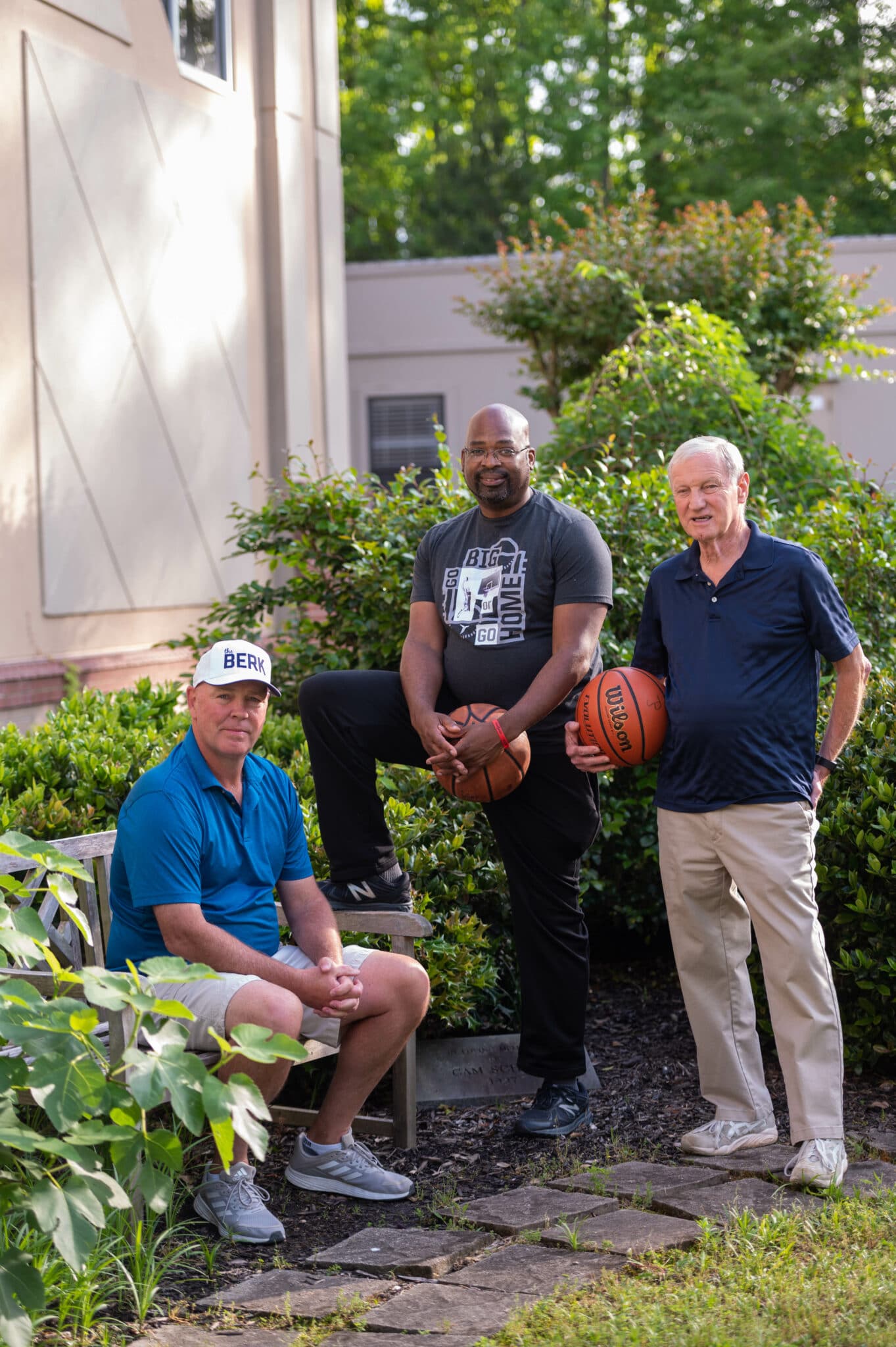
By Matt Bruce
Photos By George Hunter
Sanctuary is an oasis of refuge. A fortress of equanimity nestled upon resilient timbers sturdy enough endure turbulent sea changes.
Many look for sanctuary in the traditional realms of church pews and scripture. Others find it in work or hobbies while some turn to yoga mats and nature trails to find their place of solace.
But a local group of hoops lovers found theirs in sport. Three times a week, they crawled out of bed before dawn and convened at the Robert D. Fowler Family YMCA on Jones Bridge Road for early morning pickup basketball games.
Theirs was a refuge that existed between the black lines of the hardwood court. Saggy-eyed engineers and insurance salesmen filtered in for shoot arounds at 6 a.m. Minutes later, the kinetic pace of full-court runs energized the gymnasium.
For two hours, the chorus of sneakers squeaking against the synthetic wood floors mixed with the snap of the roundball swishing through the net. Afterward, each of the men went their separate ways for an honest day’s work.
It was a ritual that held true for decades at the Peachtree Corners Y. Dozens of recreational ballplayers, hungry for good pickup games, cycled through the gym on different days. As many as 75 players were signed up on an email distribution list for the 6 a.m. runs.
But COVID forced statewide shutdowns of Georgia’s gyms last spring, stripping the local hoopers of their beloved sanctuary. Gov. Brian Kemp issued a shelter-in-place order April 2, 2020, officially closing all gyms, hair salons, barbershops and many other businesses across Georgia. That executive order came two weeks after all of Metro Atlanta’s YMCA facilities temporarily closed.
Thirteen months later, many of the shutdowns have lifted. However, the morning ballers had yet to return to their haven on the court.
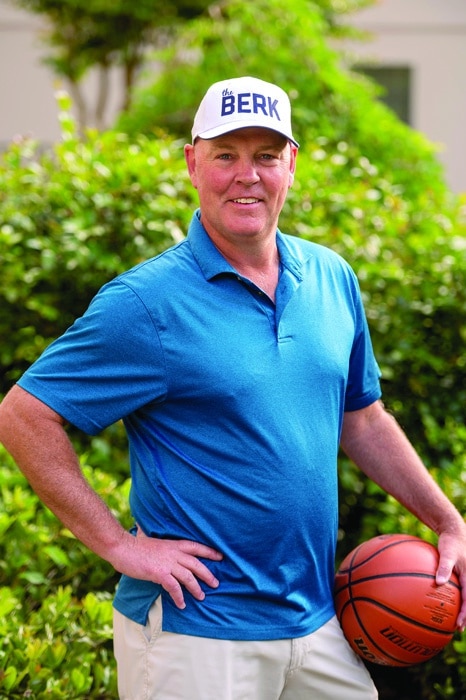
“I feel like I’m missing something,” Terry Hogan said during a recent interview. “It’s just another loss for me. It’s like the whole world’s been rocked and this is a piece that I miss and hate that it was taken away.”
COVID-19’s devastation has extended to all aspects of life, affecting everything from work and school to the ways we shop, vote, congregate and worship.
One of its overlooked impacts is the toll the pandemic has had on casual friendships. Researchers say those relationships add depth to people’s lives and help eliminate the feelings of isolation that have crept into many households over the past 14 months.
Before the pandemic-forced closures, Hogan, a 56-year-old engineer, had been playing basketball at the Y since 1998. He and three of the other group’s mainstays sat down with Peachtree Corners Magazine last month to discuss life sans their pre-dawn basketball rendezvous.
“It feels good because it’s a sense of normalcy,” Hogan said of seeing some of his old buddies for the first time in more than a year. “Normalcy’s about to return, that’s how I view it.”
‘It’s Sort of Like Family’
For this group, normalcy meant starting their day with a workout. They met at the Peachtree Y around 6 a.m. every Monday, Wednesday and Friday. The majority of them are working professionals so the early starts gave them enough time to muster a handful of pickup games before cleaning up and heading to the office.
“It jumpstarts your day,” Jesse Mills said. “The thing about it, once you get into a routine, your body adapts.”
Mills, a 39-year-old tech analyst, was recruited to play about 12 years ago. He’s a part-time referee and was officiating a rec league in which Hogan played at the time. Mills said he was about 300 pounds when he first started waking up for the morning scrimmages. He’s slimmed down to about 200 pounds and now brings an explosive style to the pickup games, capable of slashing to the bucket and knocking down 3-point shots.
The ensemble includes a mixture of ballplayers from across the Atlanta metro region. Some drove from as far away as Cherokee County — over an hour away — to get in on the action. The players ranged in age from early 20s to mid-50s. Some of the regulars were women.
Between 12 and 15 players showed up each morning. The crowd swelled to over 20 during the summer months, when college students were home from school and local teachers joined the fray.
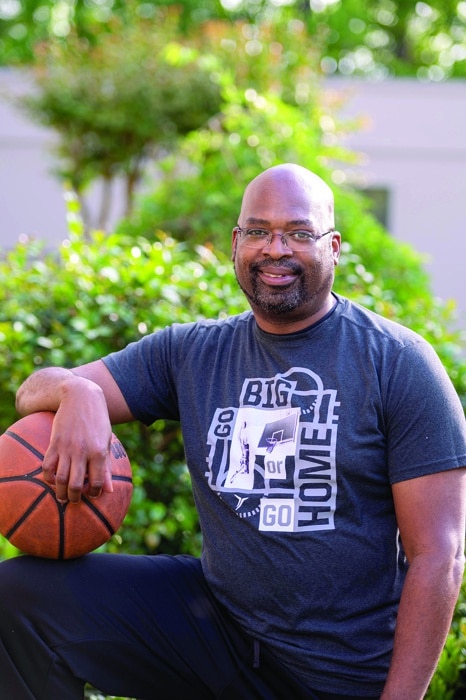
“All the basketball personalities are there at different times,” said Karl Barham, a regular of the past 20 years. “You dread it, but you can’t beat it. Every morning, I get up with the same feeling of ‘I don’t want to go, I want to sleep.’ But on those days, the second I get on the court and get that first game in, that feeling’s gone. And I never regret it. I never feel like I should have stayed home. It’s the days that you don’t go that you regret not going.”
Barham, a 48-year-old New York City native, plays a physical style patterned after the Patrick Ewing-led Knicks of the 1990s. Without real options to play basketball over the past year, he said he’s struggled to stay in shape. He’s tried alternatives like the Peloton and running outdoors.
“But you don’t get the cardio, you don’t get the exercise you get with running on the basketball court,” Barham said. “Even just getting up in the morning, keeping that routine.”
Trash talk was an integral part of the players’ bond. Barry Blount, an automotive engineer, moved to the area from Michigan in 2012 and quickly stumbled upon the morning rec runs. He said the boastful banter begins with text messages long before they hit the court. And the smack talk continues right after the runs are over for the day. It’s all borne out of the spirit of competition that draws the ballers to the gym.
“It’s sort of like family because even when we argue, we all know what the limits are and it never really lasts that long,” Blount said. “We have the games and everybody loves it. It’s the kind of group that would hang out outside of work.”
While Mills may be effective on the court, he catches flack for the volume of fouls he calls during the games. It’s become a running joke in the group over the years, with his comrades wisecracking that he should leave his whistle at home. Mills shrugs it off.
“I’m a ref, so anytime I call something, they’re always yelling ‘bad call,’” he acknowledged with a wry grin. “But it’s a pretty good group of guys that we’ve got on a normal basis.”
The Love of the Game
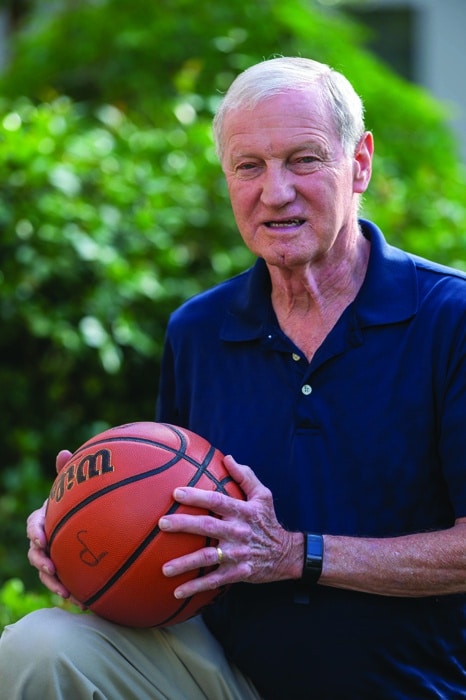
Jiles Parham, who turned 77 in May, played morning basketball for more than 30 years in Albany, Georgia before moving to Conyers in 2012.
Parham has a special bond with the game. Basketball is credited with saving his life. During a morning run at the Albany Y in 1995, Parham collapsed on the court. He came up to Atlanta to have five heart bypasses at the Emory University Hospital.
“The doc that did the surgery said, ‘Keep playing, keep doing what you’re doing,’” Parham recalled. “They said it was the reason I survived, because I was in good shape. But I say it’s because the Lord saved my life.”
When he moved to the Atlanta suburbs, Parham said he first tried out a gym in south DeKalb. But it only offered recreational games once a week on Monday nights.
“So I called around, and this was the only Y that had 6 o’clock basketball. That’s why I started coming up here,” Parham said.
Before the early pickup games at Peachtree Y were suspended last year, Parham woke up at 4:20 each morning in time to travel from Conyers and hit the court by 6 a.m. “If you love basketball, you’ll do it,” he said.
“If the world could live like we play basketball, we’d be a lot better place. That’s for sure,” Parham added later. “If we have disagreements, we take turns on a ball. But if you have a bad call, we’ll shoot the three for it. And whoever makes or misses it, we keep playing.”
Shaking Off the Rust
All of the members of the group said they miss the fellowship. Blount said a few tried to arrange times to catch up around Christmas, but those plans eventually fell through because of scheduling conflicts.
“I love the basketball,” he explained. “But I also love the fact that I found a group of guys who all kind of have the same mindset as I do. They’re all family guys…And a lot of us are not from here, so we don’t have family here. So it gives me, like, a group that I can affiliate myself with.”
The bug to get back on the court started to set in around late March when the winter weather dissipated. Several people started texting each other about going back to the gym.
“At least get the guys sparked back up to start playing again,” Blount said. “Everybody wants to get back in the gym, to get in shape and just kind of see each other. Get that camaraderie going again.”
Mills said he’d already started back at different gyms throughout the area, but his game wasn’t the same as before the pandemic. He’d heard whispers of other local courts that were set to open.
Hogan reflected on losing his connection with the group. He was itching to get back on the court but had some apprehensiveness after being away for a whole year.
“I’m worried about my age,” he said. “It’s hard at this age to stop and start back up.” Despite those concerns, he began making plans to get the word out and round the gang back up.
“This is perfect timing,” he told Mills, Parham and Barham as they sat at Towns Center plotting a return to the courts. “This is like going to be the restart. It’s like we’re close to restarting, and talking to us now is the perfect reason to restart.”
Related
City of Peachtree Corners
Public Notice: Scheduled Maintenance on Town Center Parking Deck
Published
1 week agoon
March 25, 2025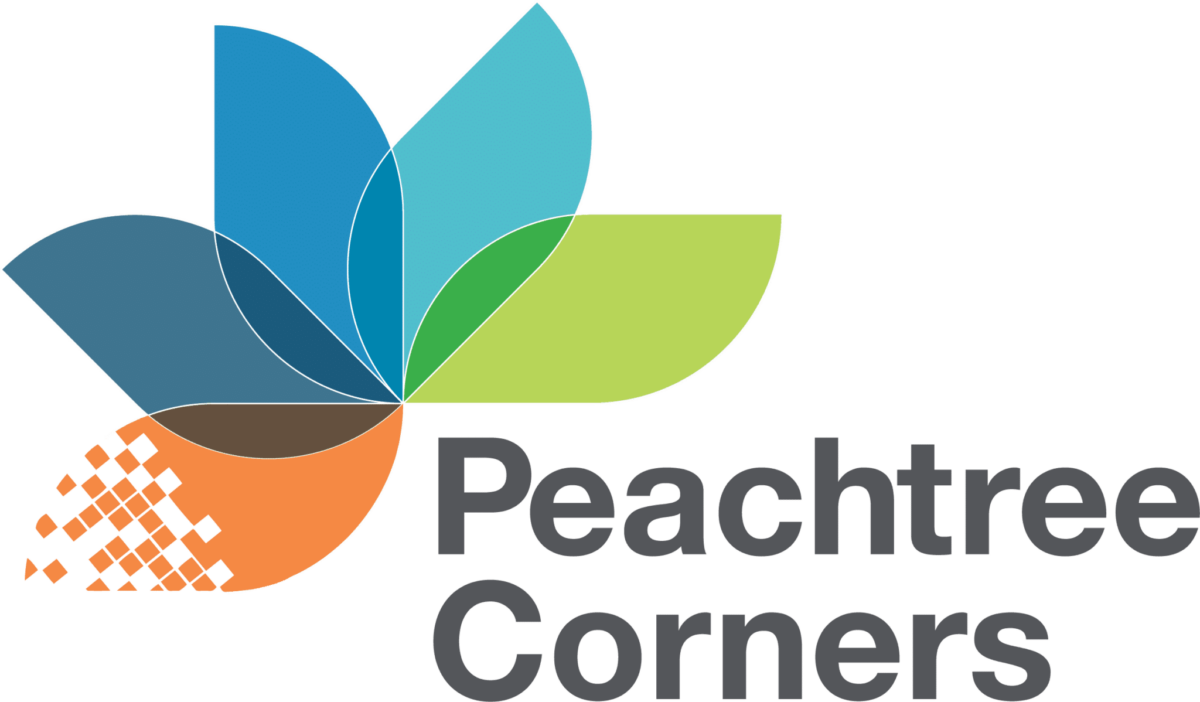
Maintenance and repairs will take place from March through July; the deck will remain open to the public throughout
Starting the week of March 24, the City of Peachtree Corners will begin scheduled maintenance and repairs on the Town Center Parking Deck. These improvements are expected to continue through July 2025 and are necessary to ensure the longevity of the structure.
During this period, the deck will remain open to the public, but the repair areas will be temporarily closed on a rolling basis. These closures will allow crews to efficiently complete the necessary work while minimizing disruption to tenants, customers and residents.
To assist with navigation, directional signage, barriers and other safety measures will be in place to guide drivers and pedestrians safely around work areas. For public safety, drivers must follow the directional signage and only park in the open sections of the deck.
The city appreciates the public’s patience and cooperation as they work to maintain a safe and well-functioning parking facility.
For project updates, visit peachtreecornersga.gov.
Related
City of Peachtree Corners
Fun for a Good Cause at Curiosity Lab’s Inaugural 5K Run/Walk
Published
2 weeks agoon
March 18, 2025
The Charity Run/Walk will be part of Curiosity Lab’s annual Criterium event
Expect a day of thrilling races and family-friendly fun at the inaugural Curiosity Lab Charity 5K Run/Walk followed by the Curiosity Lab Criterium on Sunday, April 27.
The day-long community event will kick off at 8 a.m., when registration opens for the 5K. The race will start at 9 a.m. and end at 10:30 a.m., and the Criterium will begin at 11:15 a.m.
In addition to the running and cycling events, there will also be kid’s races, food & beverage vendors, a kids zone, a DJ spinning tunes and more fun throughout the day.
The Charity 5K Run/Walk
Presented by Werfen and Sidel, with additional support provided by Atlas Collaborative and the City of Peachtree Corners, the Charity 5K Run/Walk will benefit the American Leukemia and Lymphoma Society and 100% of the registration fees will be donated.
While no prizes will be given for the race, bib timing will be used for those who would like to see their times. And each registrant will receive a Curiosity Lab Charity 5K Run/Walk t-shirt for participating.
Registration for the 5K is open now.

Curiosity Lab Criterium
Following the 5K, hang around and experience the Curiosity Lab Criterium, part of U.S. Pro Cycling’s Speed Week.
Speed Week is a premiere week-long event on the U.S. Pro Cycling Circuit that draws cyclists from around the world, including Olympic medalists and world and national champions. In 2024, the professional men’s and women’s events drew cyclists from over 30 states and more than 20 countries.
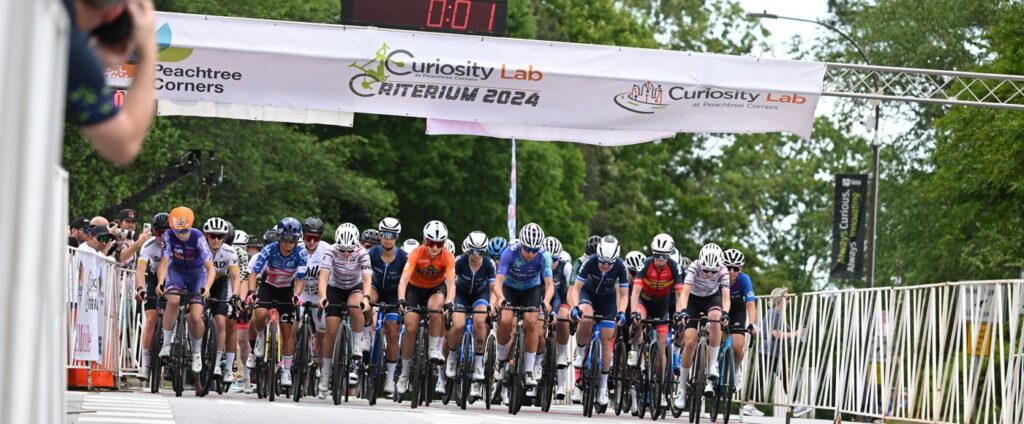
Join in the excitement and watch as some of the world’s top male and female Criterium Racers tackle the most challenging track on the circuit.
The details
The 2025 Curiosity Lab Criterium & 5K will take place on a course located within the world-famous Curiosity Lab at Peachtree Corners — a 5G-enabled, 500-acre living laboratory ecosystem designed specifically as a proving ground for IoT, mobility and smart city emerging technologies.
Location: Curiosity Lab at City Hall • 310 Technology Pkwy NW, Peachtree Corners
Date and time: 8 a.m. to 8 p.m. The 5K starts at 9 a.m and ends at 10:30 a.m. The Criterium begins at 11:15 a.m.
Parking for the event will be located at 400 and 420 Technology Parkway, Peachtree Corners.
For more information, visit peachtreecornersga.gov.
Related
Community
Upcoming Spring Events You Won’t Want to Miss in April
Published
2 weeks agoon
March 17, 2025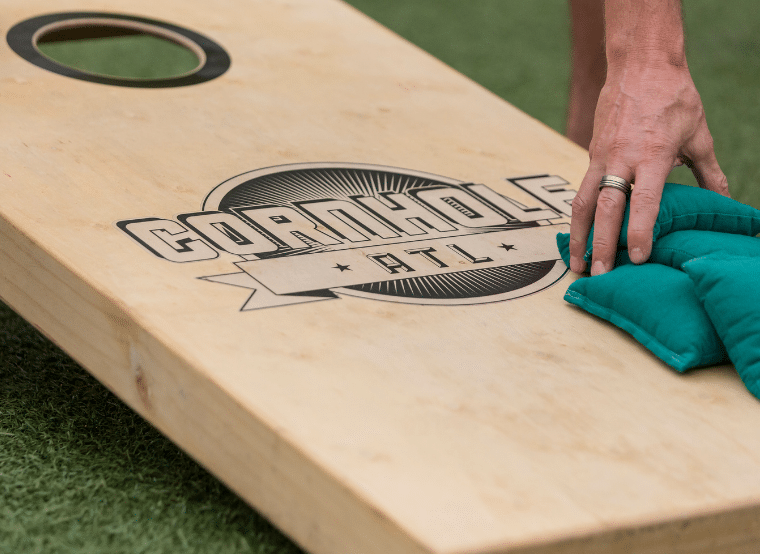
The sun is out, days are getting warmer and spring is on its way. That means more time outdoors and more fun events and activities in and around Peachtree Corners.
From movies and sports to live music and family fun, now’s the time to mark your calendar for all of the upcoming events you won’t want to miss. We’re sharing a few of our April favorites to get you started.
CrossFit on the Green
All ages and fitness levels are invited to join Terrance Fox with CrossFit PPG on the Peachtree Corners Town Green, Thursdays at 8 a.m. for a strength and conditioning workout. Bring water (no glass containers), a small towel or two, and a mat if possible. Wear comfortable workout attire and good shoes. March–November. Admission: free
Peachtree Corners Town Green • 5140 Town Green Blvd., Peachtree Corners
Cornhole Spring League
Come out and cheer on the teams who’ve registered to compete in this seven-week spring league. Play takes place weekly beginning March 20 and ends on May 15 with a tournament and trophy. 6 p.m. to 9 p.m. Admission: free
The Forum at Peachtree Corners • 5155 Peachtree Parkway, Peachtree Corners
Friday Night Live
Kick back and groove to the smooth sounds of live music from favorite local artists every Friday night on The Plaza, April–October. Concert schedule will be announced soon. 6 p.m. to 8 p.m. Admission: free
The Forum at Peachtree Corners • 5155 Peachtree Parkway, Peachtree Corners
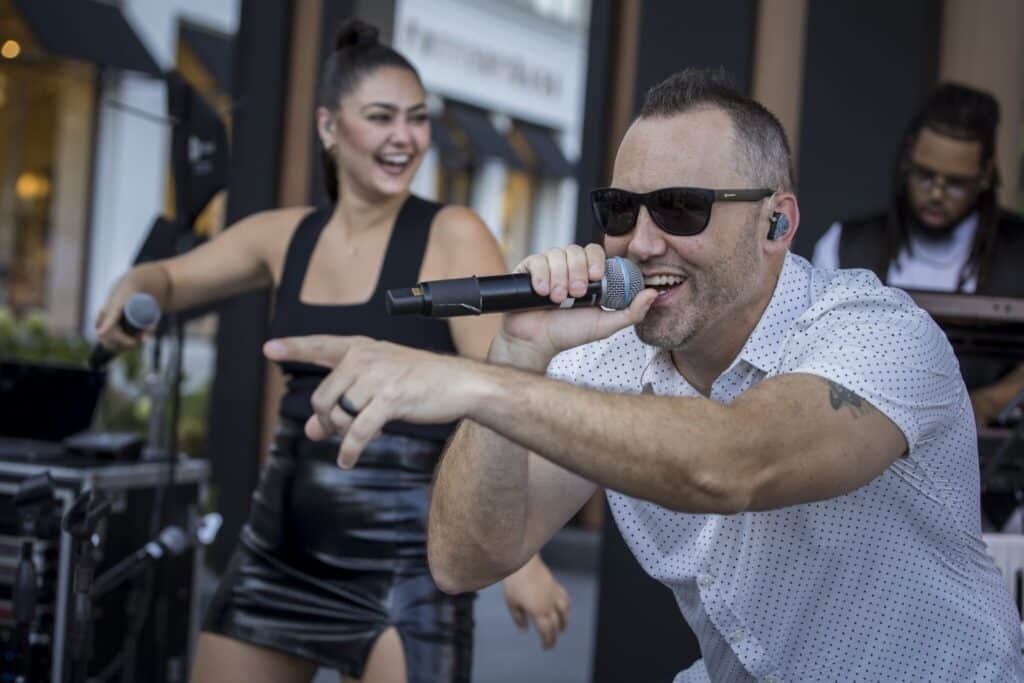
Kids and Parents Gardening Workshop
This gardening workshop presented by nonprofit group DFOWW will share basic gardening information for youth ages 5–12 and their parent or guardian. Seeds, plants and a catered lunch will be provided. Register online. April 5 from 10:30 a.m. to 3:30 p.m. Tickets: $75 per adult; $10 per adult for low-income families
Norcross Cultural Arts and Community Center • 10 College St., Norcross
Forum Flicks
Forum Flicks are back for 2025. Gather on The Plaza and enjoy your favorite movies on the big screen on the second Tuesday of each month. Movie schedule will be announced soon. April–October starting at 6 p.m. Admission: free
The Forum at Peachtree Corners • 5155 Peachtree Parkway, Peachtree Corners
Spring Plant & Pot Sale
Kick off the spring gardening season with this four-day sale of plants and pots. Tomatoes, peppers, herbs, flowers and more will be available for purchase. April 19, 21–23 from 9 a.m. to 3 p.m. on Saturday; 3 p.m. to 7 p.m. Monday–Wednesday.
Peachtree Farm • 356 Research Ct., Peachtree Corners

Earth Day Celebration
Learn about the origins of Earth Day and create seed bombs to take home with you at this all-ages workshop. April 22 from 4 p.m. to 5 p.m. Admission: free. Registration is not required.
Peachtree Corners Library • 5570 Spalding Drive, Peachtree Corners
Mt. Carmel Spring BBQ
Enjoy pork BBQ, Brunswick stew, slaw and desserts. The event will continue until items sell out. Dine in and take out are available. April 25 starting at 11 a.m.
Mount Carmel United Methodist Church • 5100 S. Old Peachtree Rd., Peachtree Corners
Wesleyan Artist Market
This annual two-day market showcase features a curated selection of artwork, handmade goods, jewelry and more, with offerings from professional artists as well as student artists. April 25–26 from 10 a.m. to 7 p.m. on Friday; 10 a.m. to 3 p.m. on Saturday.
Wesleyan School • 5405 Spalding Drive, Peachtree Corners
Spring Fest!
Welcome spring at CtK’s annual Spring Fest! Families are invited to join in for a day of free family fun, food, face painting, a petting zoo and more. April 26 from 11 a.m. to 2 p.m. Admission: free
Christ the King Lutheran Church • 5575 Peachtree Parkway, Peachtree Corners

Curiosity Lab Criterium and Charity 5K Run/Walk
This day-long, family-friendly event on April 27 will feature an inaugural charity 5K Run/Walk to benefit the American Leukemia and Lymphoma Society. Following the race, guests are invited to hang around and experience the Curiosity Lab Criterium, a U.S. Pro Cycling Circuit Race. The 5K starts at 9 a.m.; the bike race begins at 11:15 a.m. There will also be kid’s races, food & beverage vendors, a kids zone, DJ and more throughout the day. From 8 a.m. to 8 p.m.
Curiosity Lab at City Hall • 310 Technology Pkwy NW, Peachtree Corners
Related
Read the Digital Edition
Subscribe
Keep Up With Peachtree Corners News
Join our mailing list to receive the latest news and updates from our team.
You have Successfully Subscribed!

Expanding Horizons: How KGM Technologies Balances Defense, Medical, and Precision Manufacturing

Why Patient Experience Matters: A Conversation with Dr. Aristo Shyn

Burn The Ships: Alex Wright on Committing to Success & Helping Businesses Thrive

Public Notice: Scheduled Maintenance on Town Center Parking Deck

Mike Schleifer to Leave Alliance for Lincoln Center Theater

Inside the Solicitor General’s Office: Lisamarie Bristol on Justice in Gwinnett County

Holy Week, Easter Sunday and Church Events in April

Holy Week, Easter Sunday and Church Events in April

Expanding Horizons: How KGM Technologies Balances Defense, Medical, and Precision Manufacturing

Mike Schleifer to Leave Alliance for Lincoln Center Theater

Public Notice: Scheduled Maintenance on Town Center Parking Deck

Inside the Solicitor General’s Office: Lisamarie Bristol on Justice in Gwinnett County

Why Patient Experience Matters: A Conversation with Dr. Aristo Shyn

Burn The Ships: Alex Wright on Committing to Success & Helping Businesses Thrive

Fun for a Good Cause at Curiosity Lab’s Inaugural 5K Run/Walk

Light up the Corners [Video]

Capitalist Sage: Business Leadership in Your Community [Podcast]

Cliff Bramble: A Culinary Adventure through Italy

Top 10 Brunch Places in Gwinnett County

A Hunger for Hospitality

THE CORNERS EPISODE 3 – BLAXICAN PART 1

Top 10 Indoor Things To Do This Winter

The ED Hour: What it takes to Remove Barriers from Education






